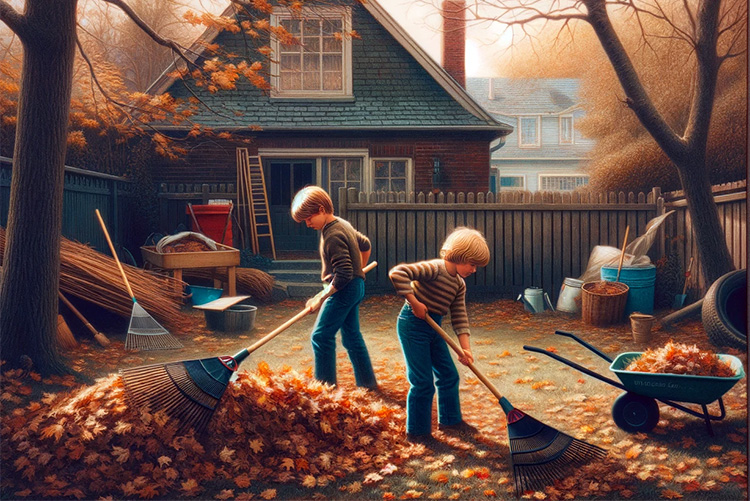Empowered Success for Teens
Our blog is a comprehensive resource for parents, educators, and youth themselves, offering a range of information and resources to support the development of critical life skills. From communication and problem-solving to financial literacy and leadership, our programs are tailored to the unique needs and interests of tweens and teens.

Hello, parents! Today, we’re going to talk about something that might make your kids groan - chores. But wait! Before you close this page, let’s explore why chores are not just about keeping the house clean, but also about teaching valuable life lessons to our kids.
Why Chores?
Chores are like magic keys that unlock skills our kids need as they grow. They teach responsibility, time management, and the value of hard work. Plus, they help kids feel like they’re contributing to the family, which boosts their self-esteem.
Age-Appropriate Chores
Chores should be suitable for your child’s age and abilities. For example, a 6-year-old can help set the table, while a 12-year-old can help with laundry. Remember, the goal is not perfection, but progress.
It’s a Learning Experience
Parents, remember when you first learned to do chores? You probably didn’t do them exactly like your parents did. The same goes for our kids. They might not fold the laundry or wash the dishes the exact way we do, and that’s okay. It’s all part of the learning process.
Benefits for Parents
Assigning chores to kids can lighten your load, but the real benefit is seeing your child grow and learn. It’s about preparing them for the future and teaching them skills they’ll use throughout their lives.
Wink Note 😉 To encourage them, make it fun. Put some upbeat music during chores, and make it a
contest.
To Pay or Not to Pay?
Some parents believe in paying kids for chores, while others don’t. Paying kids can teach them about earning money, but not paying them can emphasize that chores are part of being a family member. There’s no right or wrong answer here. Do what works best for your family. Additionally, paying them does not have to be with money, it can be with rewards, a fun outing, an extra half hour of something they like to do, etc. Please do not use food for rewards, as this food reward will create bad unhealthy habits for the future.
So, parents, next time your child groans about chores, remember the magic they hold. Chores are not just tasks. They’re steppingstones on the path to raising responsible, confident, and capable adults.